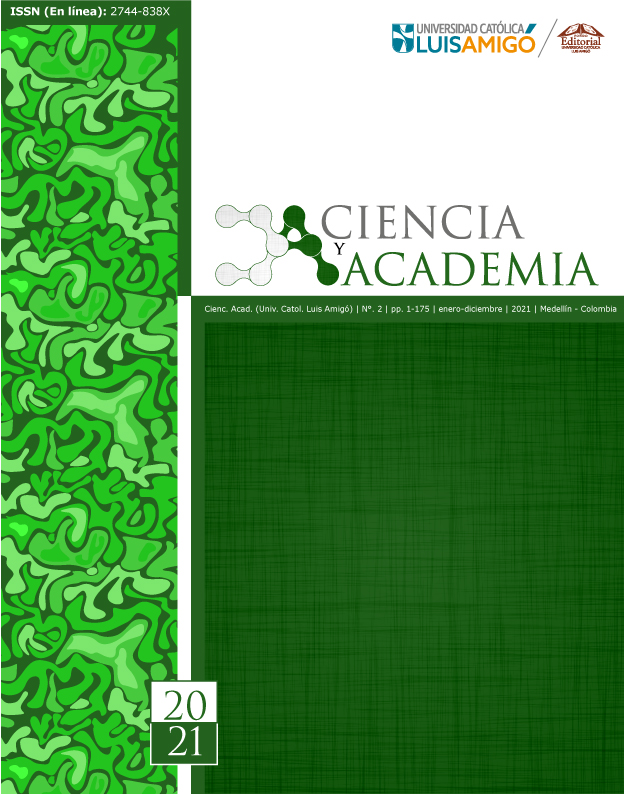The transfer to collective knowledge
DOI:
https://doi.org/10.21501/2744838X.4268Keywords:
Knowledge, Scientific knowledge, Critical thinking, Positivism, Frankfurt School, Modern Age, PedagogyAbstract
This article aims to reveal what has been understood in the West by knowledge; for
this, we will use a transfer by three important areas of this, namely: the emergence
of knowledge as Logos to the Greek way of understanding the term; the moment
that is established in modernity and the meaning of classical science and finally, the
so-called critical thinking, manifested in the Frankfurt School. Exhorting the reader
to think of knowledge as a mobile, unfinished concept and always in potential
construction.
Downloads
References
Adorno, T. (1991). Actualidad de la filosofía. Ediciones Paidós.
Adorno, T. (2001). Epistemología y ciencias sociales. Ediciones Cátedra.
Agudelo, J., Rojas, F., & Ocampo, E. (2019). Sobre el reconocimiento y la otredad en la escuela: una lectura desde Lévinas y Mélich. Perseitas, 8, 1-20. https://doi.org/10.21501/23461780.3502
Bruner, J. (2003). La fábrica de historias: derecho, literatura, vida. Fondo de Cultura Económica.
Castellano, H. (2007). El pensamiento crítico en la escuela. Prometeo Editorial.
Congreso de Colombia. (1994, 8 de febrero). Ley 115 de 1994. Por la cual se expide la ley general de educación. Diario Oficial n.°. 41.214. https://www.funcionpublica.gov.co/eva/gestornormativo/norma.php?i=292
Descartes. R. (2010). El discurso del método. FGS.
Epicuro. (1998). Sobre la felicidad. Ediciones Norma.
Flórez, R. (2005). Pedagogía del conocimiento. Editorial Mc Graw Hill.
Freire, P. (2002). Pedagogía de la esperanza: un reencuentro con la pedagogía del
oprimido. Siglo XXI Editores.
Freire, P. (2007). La educación como práctica de la libertad. Siglo XXI Editores.
Gadamer, H.G. (1993). Verdad y método. Salamanca.
Gimeno, J. (1991). El currículum: una reflexión sobre la práctica. Ediciones Morata.
Habermas, J. (1990). Conocimiento e interés. Taurus.
Heidegger, M. (1976). El principio de la razón, en ¿qué es la filosofía? Narcea Ediciones.
Horkheimer, M. (2000). Teoría tradicional y teoría crítica. Ediciones Paidós.
McEwan, H., & Egan, K. (2005). La narrativa en la enseñanza el aprendizaje y la investigación. Amorrortu Editores.
Morin, E. (1984). Ciencia con conciencia. Anthropos Editorial.
Platón. (1987). El Parménides. Alianza Editorial.
Polkinghorne, D. (1995). Narrative configuration in qualitative analysis. En J. Hatch y R. Wisniewski (Eds.), Life history and narrative (pp. 5-23). Falmer Press.
Ricoeur, (2003). Tiempo y narración III: el tiempo narrado. Siglo XXI Editores.
Wagensberg, J. (2006). A más cómo menos por qué. Ciencia (NF).
Published
How to Cite
Issue
Section
License
Copyright (c) 2022 Ciencia y Academia

This work is licensed under a Creative Commons Attribution-NoDerivatives 4.0 International License.
La revista y los textos individuales que en esta se divulgan están protegidos por las leyes de copyright y por los términos y condiciones de la Licencia Creative Commons Atribución-No Comercial- 4.0 Internacional. Permisos que vayan más allá de lo cubierto por esta licencia pueden encontrarse en http://www.funlam.edu.co/modules/fondoeditorial/






